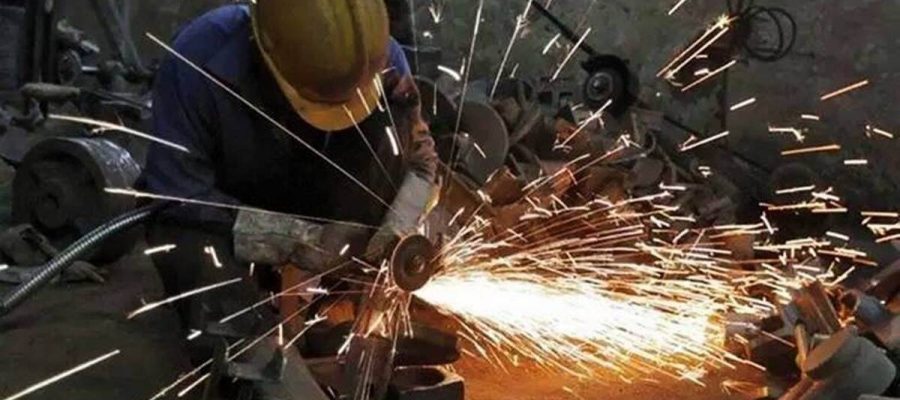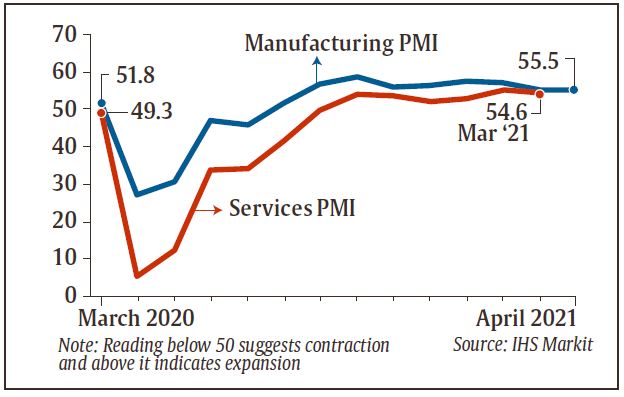According to data released by analytics firm IHS Markit, purchasing managers’ index (PMI) for April marginally rose to 55.5 after declining to a seven-month low in March at 55.4. A figure above 50 indicates expansion, while sub-50 signals contraction.
The country’s manufacturing activity improved marginally in April even as fresh domestic factory orders and output eased to eight-month lows due to an intensification of the coronavirus pandemic, which was nullified by new export orders rising at fastest rate since October last year.
According to data released by analytics firm IHS Markit, purchasing managers’ index (PMI) for April marginally rose to 55.5 after declining to a seven-month low in March at 55.4. A figure above 50 indicates expansion, while sub-50 signals contraction.
“Economic conditions in India’s manufacturing sector remained favourable in April, as companies scaled up production in line with a further improvement in demand. While output and sales increased at the slowest rates since last August due to an intensification of the Covid-19 crisis, there was a faster upturn in international orders,” IHS Markit said. Moreover, quantities of purchases expanded at one of the strongest rates seen for over nine years as firms sought to boost inventories.
New export orders key
While output and sales increased at the slowest rates since last August due to an intensification of the Covid-19 crisis, there was a faster upturn in international orders.
Pollyanna De Lima, economics associate director at IHS Markit, said: “The PMI results for April showed a further slowdown in rates of growth for new orders and output, both of which eased to eight-month lows amid the intensification of the Covid-19 crisis. Still, the increases were strong by historical standards and the survey revealed other positive news.” New export orders surged to the fastest since last October and buying levels expanded at one of the sharpest rates seen for nine years. Also, the downturn in employment eased and business confidence towards the one-year outlook strengthened, IHS Markit said.
“The surge in Covid-19 cases could dampen demand further when firms’ financials are already susceptible to the hurdle of rising global prices. April saw the steepest increase in input costs for nearly seven years drive the sharpest upturn in output charges since October 2013,” De Lima said.
Source: Read Full Article



